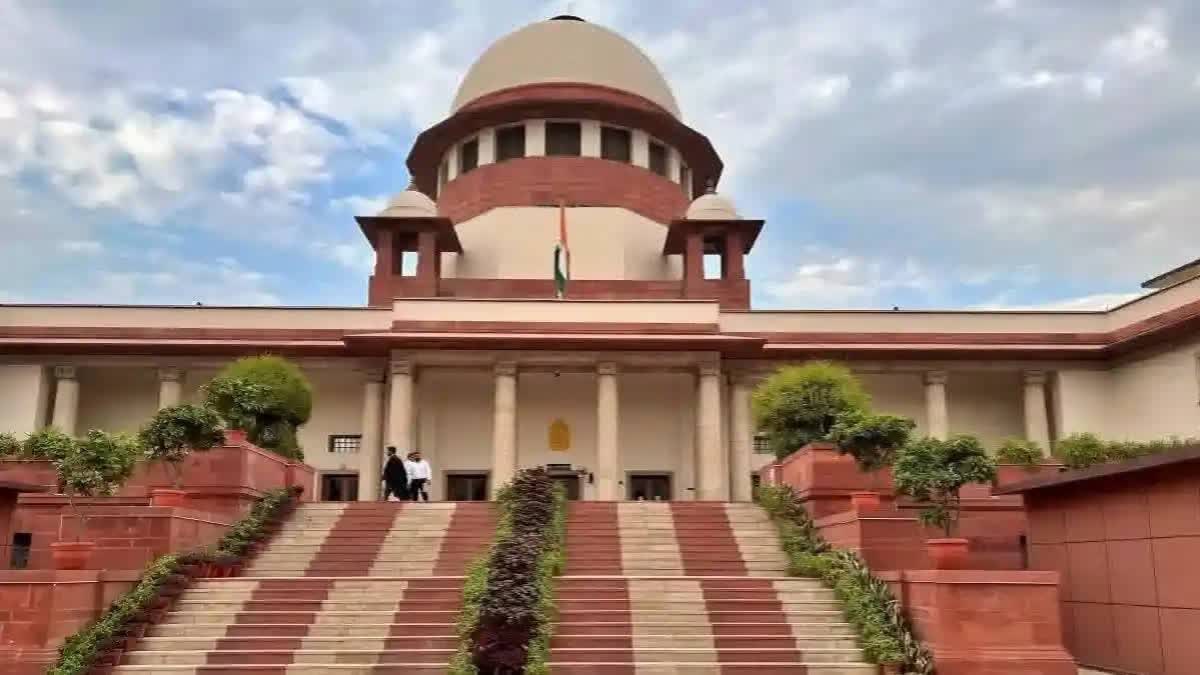New Delhi: The Supreme Court on Monday agreed to examine whether an ex-Muslim continues to be governed by the Muslim personal law, the Shariat Act of 1937, or by the secular laws of the country in matters of succession.
A three-judge led by Chief Justice of India D Y Chandrachud and comprising justices J B Pardiwala and Manoj Misra issued notice on a writ petition filed by a woman from Kerala, who raised this important question. The petitioner Safiya P M, moved the apex court through advocate Prashant Padmanabhan. The bench also asked the Attorney General for India to nominate a law officer to assist the court bearing in mind the importance of the issues which are raised.
“You want to get a declaration that you won’t be governed by Muslim Personal Law. You do not have to seek that declaration because the Section 3 of the Shariat Act says unless you make a declaration you will not be governed by the personal law in matters of wills, adoption, and legacies. If you do not make a declaration, your father hasn’t made a declaration, they are not governed by the personal law”, said the CJI.
However, the CJI said, “there is a problem, because if you do not make a declaration there is still a void that the secular law does not apply”. The counsel said when his client exercises her free choice or the right not to believe.
At the beginning of the hearing, the bench expressed its disinclination to entertain the petition and said as long as the person making the will does not make a declaration under Section 3 of the Muslim Personal Law (Shariat) Application Act, 1937, they will not be governed by the Act.
However, Padmanabhan insisted that the petition raises an important issue which requires the court's attention. Concluding the hearing, the CJI said while reading the petition, the judges’ thought what kind of a petition is this but the court’s see an important point. “We will issue a notice,” CJI told the petitioner’s counsel.
“Petitioner is seeking a declaration that the persons who do not want to be governed by the Muslim Personal Law must be allowed to be governed by the secular law of the country, viz, the Indian Succession Act, 1925 both in the case of intestate and testamentary succession”, said Safiya’s plea.
The plea said petitioner, a born Muslim woman to a non-practising Muslim father, who has not officially left the religion, is facing the peculiar problem in protecting her precious civil rights. The petitioner is the general Secretary of Ex-Muslims of Kerala.
In India any person who is born as a Muslim is governed by the Muslim Personal Law (Shariat) Application Act, 1937. “As per Sharia law, the person who leaves her faith in Islam, will be ousted from her community and thereafter she is not entitled for any inheritance right in her parental property. Further, the Petitioner is apprehensive about the application of the law in the case of her lineal descendant, her only daughter, if the Petitioner officially leaves the religion”, said the plea.
The plea said the petitioner wishes to get a declaration that she shall not be governed by Muslim Personal Law for any of the matters listed in section 2 or 3 of the Muslim Personal Law (Shariat) Application Act, 1937, but there is no provision either in the Act or in the Rules wherein she can obtain such a certificate. “It is submitted that this is a clear vacuum in the statute which can be plugged by judicial interpretation. As of now, the petitioner will not be governed by the secular laws of the country, viz, the Indian Succession Act, 1925 even if she officially gets a no-religion, no-caste certificate from any authority”, said the plea.
The petitioner said her precious fundamental rights under Article 25 are made meaningless by the absence of such a protection from the state. “This Hon’ble Court may be pleased to declare that the persons who do not want to be governed by the Muslim Personal Law (Shariat) Application Act, 1937, must be allowed to be governed by the secular law of the country, viz, the Indian Succession Act, 1925 both in the case of intestate and testamentary succession”, said the plea.



